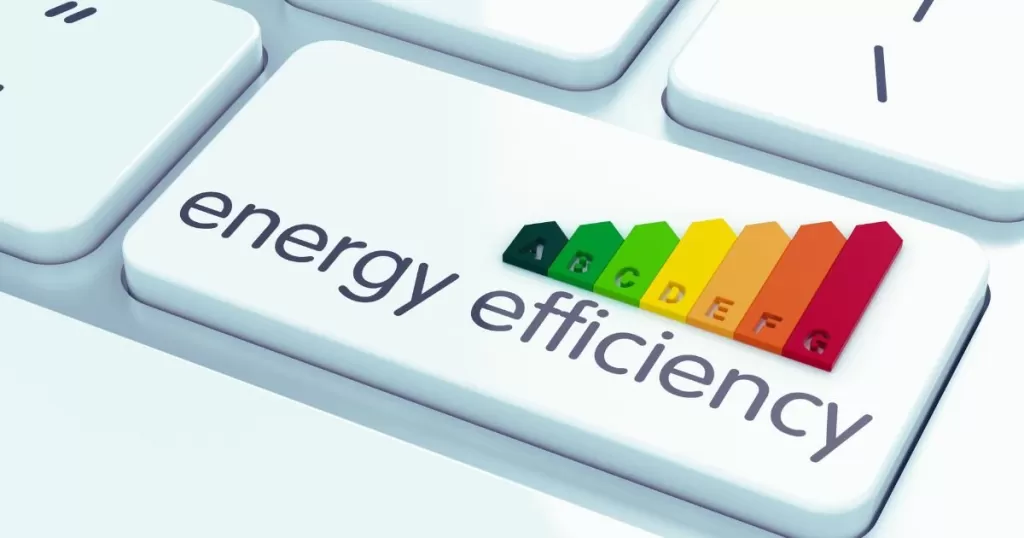Written By:
Scott McAuley
Scott is the IT Director of Texas Management Group, and has been in the IT industry for 25 years.
In small energy companies, effective IT support is a powerful asset that can drive efficiency, security, and growth.
But providing top-tier Energy IT Support comes with unique challenges, especially when resources are limited. Knowing the best practices can make all the difference in building a reliable IT foundation.
With the right strategies, small companies can optimize their technology, protect valuable data, and streamline operations. These essential tips offer a clear path to success, helping you stay competitive in a rapidly evolving industry.
Ready to boost your IT support capabilities? Here are 15 must-know tips for taking your Energy IT Support to the next level.
Let’s get started!
Key Takeaways
- Reliable Energy IT support boosts efficiency by optimizing technology, ensuring data security, and enabling small companies to remain competitive.
- Automated processes and clear IT procedures reduce errors, streamline workflows, and empower employees to resolve issues swiftly, minimizing disruptions.
- Prioritizing cybersecurity and data backup protects sensitive information, maintaining business continuity and trust in the event of cyber threats or data loss.
- Scalable, energy-efficient solutions save costs by adapting to growth and reducing environmental impact, benefiting both the budget and sustainability goals.
- Continuous IT improvement and staff training foster adaptability, ensuring that small companies are prepared for new challenges and tech advancements.
Table of Contents
Importance of Energy IT Support in Small Companies

In today’s tech-driven energy sector, small companies need reliable IT support to stay competitive. Effective IT systems keep operations efficient, secure, and cost-effective.
Small energy companies with limited resources often face disruptions from IT issues. Specialized IT support helps resolve these problems quickly, letting teams focus on core business.
Cybersecurity is a growing concern as cyber threats target energy infrastructure. Dedicated IT support ensures sensitive data and systems stay protected from breaches.
Energy IT support also enables small companies to adopt modern technologies like smart grids and renewable energy tools. These tools increase efficiency and help companies meet evolving energy demands without major expenses.
With IT support, companies gain real-time data access essential for informed decisions. This data allows for better resource management, less waste, and improved profitability.
In essence, energy IT support is crucial for small companies to thrive in a competitive market. It provides smoother operations, better security, and the flexibility to embrace new technologies for lasting success.
15 Best Practices for Energy IT Support in Small Companies
For small energy companies, robust IT support is critical to staying efficient, competitive, and secure.
Let’s explore best practices that strengthen IT systems and drive long-term success:
| Best Practice | Description |
|---|---|
| Assess Current IT Infrastructure | Evaluate existing IT strengths and weaknesses to identify needs. |
| Emphasize Cybersecurity for Sensitive Data | Enhance data security through assessments and regular updates. |
| Establish a Reliable Data Backup and Recovery Plan | Create and test backups regularly for reliable recovery. |
| Optimize Network and System Performance | Regularly monitor and optimize systems for smooth performance. |
| Prioritize Compliance With Industry Regulations | Align IT practices with industry regulations to ensure compliance. |
| Support Remote Work for Field and Office Staff | Implement tools that support secure remote access for all staff. |
| Automate Routine IT Tasks to Save Time | Automate repetitive tasks to improve efficiency and reduce errors. |
| Establish Clear IT Support Procedures | Set clear procedures for IT issues to minimize disruptions. |
| Collaborate With Specialized IT Vendors | Work with vendors for expert support tailored to the energy sector. |
| Foster a Culture of Continuous IT Improvement | Encourage continuous improvement to stay adaptable. |
| Implement Remote Monitoring and Predictive Maintenance | Monitor systems remotely to catch issues early and prevent downtime. |
| Develop an Incident Response Plan for IT and Cyber Threats | Develop a plan for quick action against cyber threats. |
| Use Scalable and Energy-Efficient Technology Solutions | Choose scalable, energy-efficient tech to support growth. |
| Regularly Update Software and Firmware | Regular updates prevent security gaps and maintain efficiency. |
| Provide Ongoing IT Training for Employees | Train employees to use technology securely and responsibly. |
1. Assess Current IT Infrastructure
Start by assessing your current IT infrastructure to identify its strengths and weaknesses. This initial evaluation helps you understand which areas need improvement and where resources are being effectively utilized.
By identifying gaps in functionality, you can prioritize upgrades and allocate resources efficiently. Regular assessments keep your IT environment aligned with your company’s evolving needs and growth.
2. Emphasize Cybersecurity for Sensitive Data
Prioritizing cybersecurity for sensitive data is essential to protect against evolving cyber threats. Regular security assessments and updates minimize the risk of breaches and protect your company’s reputation.
Invest in firewalls, encryption, and other protective measures tailored for energy-specific risks. These efforts create a secure foundation, ensuring sensitive data is well-guarded against unauthorized access.
3. Establish a Reliable Data Backup and Recovery Plan
Data loss can be devastating for a small business, making a strong data backup and recovery plan essential. This plan protects against data loss from unexpected events like cyberattacks, system failures, or natural disasters.
Testing your backups regularly ensures that your recovery plan is reliable and effective in an emergency. With a tested plan in place, you can recover quickly from data loss and maintain business continuity.
4. Optimize Network and System Performance
Optimizing network and system performance keeps operations running smoothly and prevents costly downtime. Regular monitoring can catch performance issues before they disrupt your workflow.
By streamlining your network, you enhance productivity and prevent bottlenecks that slow down essential tasks. A well-tuned system boosts employee morale and client satisfaction through reliable, responsive service.
5. Prioritize Compliance With Industry Regulations
For energy companies, compliance with industry regulations is critical to avoiding fines and maintaining credibility. IT practices should align with standards specific to energy to meet legal and safety requirements.
Regular audits help ensure your company remains compliant and up-to-date with changing regulations. Compliance not only builds trust with clients but also safeguards your company against potential legal issues.
6. Support Remote Work for Field and Office Staff
Remote work is becoming more common in energy sectors, and IT support should facilitate secure and effective remote access. Invest in tools and software that enable employees to connect from anywhere safely.
Secure remote access improves flexibility, allowing field staff to collaborate seamlessly with office teams. This connectivity enhances productivity and enables quick responses to operational changes or challenges.
7. Automate Routine IT Tasks to Save Time
Automation helps small companies manage routine IT tasks efficiently, freeing up valuable time for high-priority work. By automating backups, updates, and other repetitive tasks, you reduce the chance of errors and improve consistency.
Automation also enhances productivity by allowing your team to focus on strategic activities. This efficiency ultimately supports faster growth and a stronger competitive edge in the market.
8. Establish Clear IT Support Procedures
Clear IT support procedures ensure employees know where to turn when issues arise, minimizing disruptions. Establish guidelines on reporting problems and accessing support for common IT challenges.
Providing a structured support process reduces confusion and shortens resolution times. Clear procedures also enhance employee confidence, leading to a smoother work experience and fewer setbacks.
9. Collaborate With Specialized IT Vendors
Partnering with specialized IT vendors gives you access to industry-specific knowledge and advanced tools. These vendors offer tailored solutions that align with the unique needs of small energy companies.
Vendors bring expertise in cybersecurity, compliance, and software tailored to the energy sector. Working with experienced providers ensures your IT infrastructure is optimized for both functionality and security.
10. Foster a Culture of Continuous IT Improvement
A mindset of continuous IT improvement helps your team adapt to evolving technology and industry demands. Encourage employees to seek ways to enhance efficiency and streamline IT processes.
Regularly reviewing IT processes keeps your systems relevant and prepared for future challenges. By promoting continuous improvement, you foster a proactive, adaptable work culture that benefits overall productivity.
11. Implement Remote Monitoring and Predictive Maintenance
Remote monitoring and predictive maintenance are proactive approaches to identifying and resolving issues before they become costly. These tools allow you to monitor system health and predict when maintenance is needed.
Implementing predictive maintenance reduces downtime and helps avoid expensive emergency repairs. By detecting issues early, you maintain consistent operations and extend the lifespan of your IT equipment.
12. Develop an Incident Response Plan for IT and Cyber Threats
An incident response plan is essential for protecting your business from IT and cyber threats. This plan provides clear steps for identifying, addressing, and mitigating potential incidents.
Regular training on the response plan ensures your team is prepared to act quickly in an emergency. A strong response plan limits potential damage and accelerates recovery, protecting both assets and reputation.
13. Use Scalable and Energy-Efficient Technology Solutions
Choose scalable technology solutions that grow with your business to avoid frequent, costly upgrades. Scalable solutions allow you to adjust IT resources as needed, maximizing long-term value.
Energy-efficient technology reduces operational costs and supports sustainability efforts. By choosing efficient tools, you not only save on energy expenses but also reduce your environmental footprint.
14. Regularly Update Software and Firmware
Keeping software and firmware up to date is vital for security and performance. Regular updates address security vulnerabilities and enhance functionality across your systems.
These updates prevent security gaps and improve the efficiency of your IT infrastructure. Staying current also helps you avoid compatibility issues, keeping your systems running smoothly.
15. Provide Ongoing IT Training for Employees
Ongoing IT training empowers employees to use technology responsibly and effectively. Regular training updates them on new tools, security practices, and troubleshooting techniques.
Employee training reduces errors and strengthens cybersecurity by building awareness and confidence. Training programs help create a tech-savvy workforce that can quickly adapt to technological changes.
Conclusion
Implementing strong IT practices in a small energy company can drive efficiency, strengthen security, and support sustainable growth.
By focusing on proactive measures like cybersecurity, automation, and scalable solutions, you build a robust IT foundation that serves your unique needs.
Each of these best practices empowers your team, reducing downtime and enhancing operational resilience. Prioritizing ongoing training and collaboration with industry experts keeps your systems adaptable and future-ready.
Ready to elevate your IT support? Start by adopting these essential strategies and positioning your company for long-term success in a competitive landscape.
Embrace these steps today, and lead your business confidently into the future.
Eager to Enhance Stability in Your Energy Operations?
Discover more in our blog on best practices for energy IT, and see how our IT Services for Energy deliver reliable support for complex environments.
Reach out now for a smarter IT approach!
FAQ
What Key Technologies Should Small Companies Use for Effective Energy IT Support?
Small companies should use cloud solutions, cybersecurity tools, and data analytics for efficient energy IT support.
How Can Small Companies Ensure Compliance With Energy Regulations Through IT Support?
They can implement monitoring systems, conduct regular audits, and stay updated on regulatory changes.
What Role Does Employee Training Play in Successful Energy IT Support?
Training ensures employees understand IT systems, follow security protocols, and can respond to technical issues effectively.
How Can Small Companies Budget Effectively for Energy IT Support Services?
Small companies can budget by prioritizing essential services, exploring scalable solutions, and planning for long-term IT investments.






